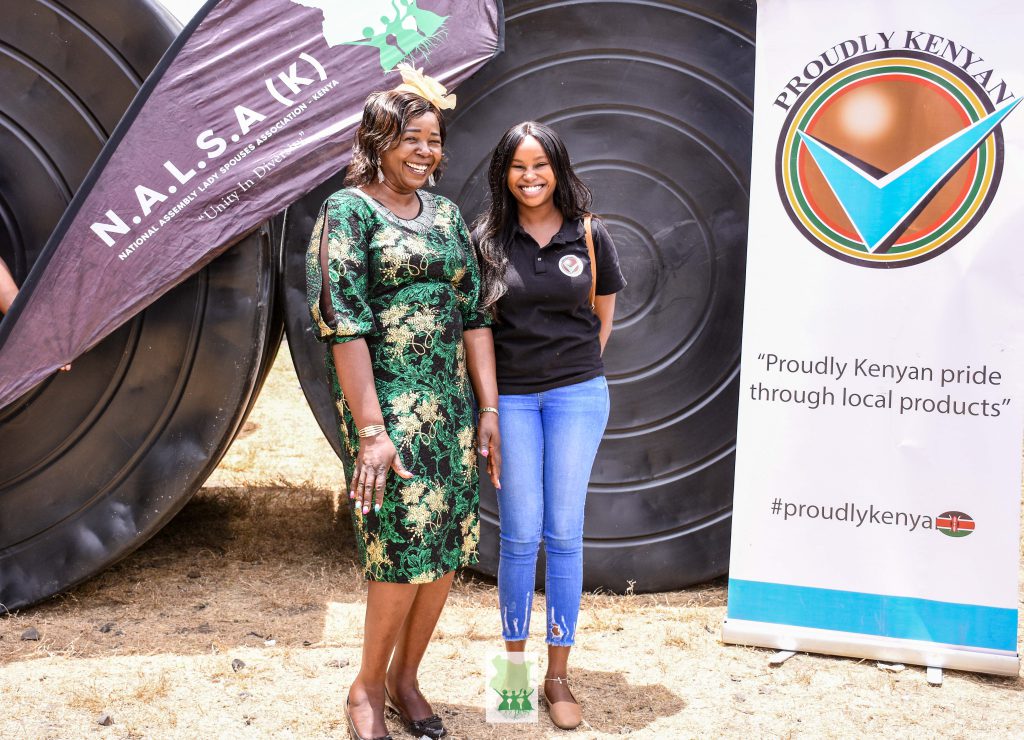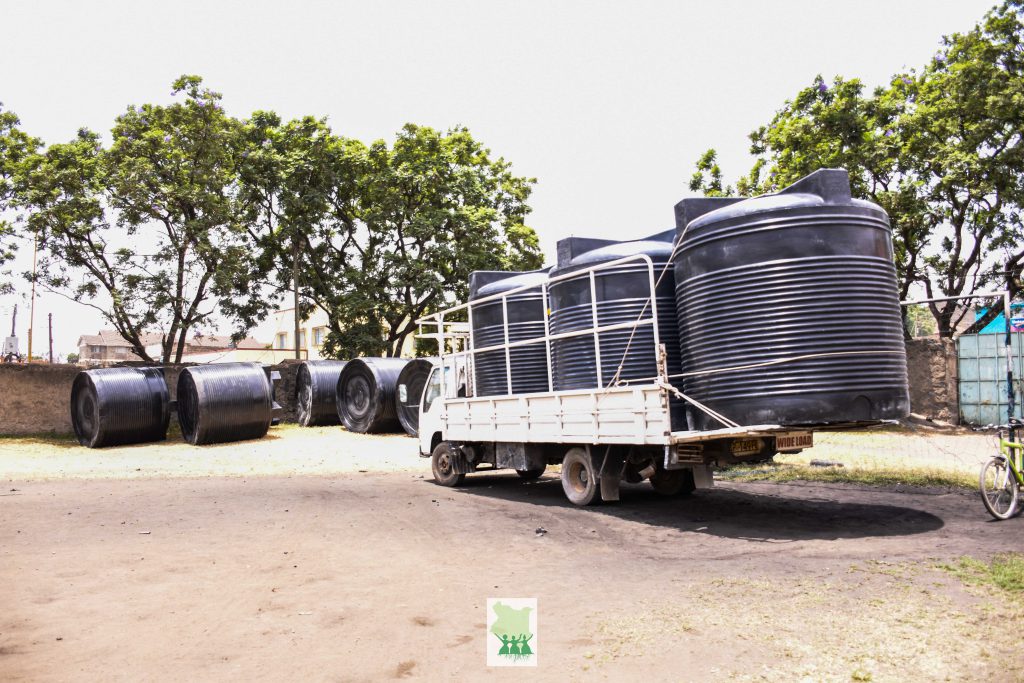THOUSANDS LIVE UNLOVED, NOT A SINGLE ONE WITHOUT WATER.

Nakuru is a treasure trove of natural wonders, from the stunning Lake Nakuru National Park to the prehistoric Hyrax Hill site and the breathtaking Menengai Crater. Its clean reputation is so renowned that it has been a test question severally in national examinations.
On February 28th, we had the privilege to witness the beauty firsthand by joining Mrs Florence Arama, one of the longest-serving NALSA(K) members, as she launched her water and sanitation project at the Shabab Grounds, located a stone’s throw from the bustling central business district.
Ever since our first project in Kaloleni, NALSA(K) and Proudly Kenyan have been collaborating on a series of projects geared to empower our member’s communities across the country. This time the empowerment initiative stops over at Nakuru West’s Shabab grounds to carry out donations to women, youth and PWD groups in the constituency.

Water challenges
Despite hosting a world-famous lake, one of the significant challenges facing the residents of Nakuru West is access to clean and safe water. The constituency experiences water shortages, especially during the dry seasons, which makes it difficult for people to carry out their daily activities. Water is essential for various purposes, including household use, farming, and business activities.
Water tanks donation
To address the challenge, Mrs Florence Arama initiated a project to give 18 water tanks to 18 registered groups in the constituency. The tank’s distribution went to women, youth and PWD groups interested in setting up water-selling businesses, car washes, and small-scale irrigation projects. The donation is to have a direct impact on the livelihoods of the beneficiaries and the wider community. The high-quality water tanks have a holding capacity of 10,000 liters.

Unity in diversity
In what is fast evolving into a customary gesture during our launches, Mrs Arama is flanked by her NALSA(K) colleagues Rose Kamren (Baringo South) and Mrs Felistus Tonui (Kuresoi North). Speaking as the chief guest during the launch, she narrates her dream of a sustainable supply of clean water in Nakuru, promoting hygiene, job creation through selling clean water, car wash businesses and small-scale farming through irrigation, therefore, aligning Nakuru West people to the sixth Sustainable Development Goal on clean water and sanitation.
Access to safe water, sanitation and hygiene is a basic need for human health and well-being. Demand for water is rising due to rapid population growth, urbanization and increasing water needs from agriculture, industry, and energy sectors.
Many countries have growing challenges linked to degraded water-related ecosystems, water scarcity caused by climate change, underinvestment in water and sanitation and insufficient cooperation on transboundary waters. Achieving the six targets of the SDG would save 829,000 people who annually die from diseases directly attributable to
unsafe water, inadequate sanitation and poor hygiene practices. This is the fourth clean water project done by NALSA(K) in collaboration with Proudly Kenyan.
“Thousands have lived without love, not one without water,” she quotes, resonating well with the multitude present who rend the air with chants of, ”Inua mama inua jamii.”
“The(tanks) donation is the beginning,” said Mrs Arama. Winding up her speech, she highlighted the statistic that Nakuru West topped countrywide in Uwezo and Women Enterprise Fund allocation.
Conclusion
The water project in Nakuru West is a shining example of what is achievable when individuals and organizations work together to tackle community challenges.
Time for us to act and support initiatives like the Nakuru West project by adding value. Value in terms of support to women, youth and PWD groups access water sources, security and by purchasing from the small businesses.
Together, we can make a real difference in the lives of so many and build a brighter, more sustainable future inclusive for everyone. So let us take action today and join hands to ensure everyone accesses this fundamental resource – water.
Post by Anyanzwa Brian
Photography & video by Julia Laval
